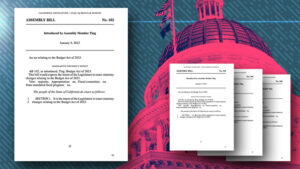New Hampshire lawmakers have passed a bill requiring audits to be performed after elections.
The new legislation, SB 157, passed the state House of Representatives unanimously, with bipartisan support and no debate, paving the way to making audits a normal practice after each state primary, presidential primary, and general election.
“We’re hoping the audit bill will restore the public’s confidence in both hand counts and machine counts in ballots,” Liz Tentarelli, president of the League of Women Voters, told the Boston Globe. “We had a lot of people after 2020 who simply doubted the counts. An audit may help those people have faith again in the process.”
Following an election, the secretary of state will randomly select at least eight towns or city wards to be audited. The names of the jurisdictions subject to audit will not be made public until at least noon on the Election Day.
Under the new law, each team conducting an audit will be comprised of two people who have been trained in the audit process, and who are appointed by the secretary of state.
The audit will be open to the public, although only audit team members will be allowed to touch any ballot or any of the equipment used in the audit.
If signed into law, New Hampshire will join dozens of other states which perform some type of election audit.
By 2020, 44 states “required some type of post-election tabulation audit to verify voting equipment used during an election correctly counts votes,” according to the U.S. Election Assistance Commission.
The National Conference of State Legislatures report says that 34 states and Washington, D.C. require a traditional post-election audit, where the audit looks at a fixed percentage of districts or machines and compares paper records to results in the voting system.
Many election experts argue that audits should be a feature within election administration architecture across the U.S.
“Financial audits are standard practice in the business world. Election audits also should be standard practice in every state after every election,” Hans A. Von Spakovsky, Election Law Reform Initiative Manager and Senior Legal Fellow at the Heritage Foundation wrote in an op-ed last year.
He added:
It should be understood that what some election officials refer to as audits are not, in fact, audits. Simply recounting, by hand, ballots that were counted by a computer scanner on Election Day is not a comprehensive audit. Yes, that can ensure that the scanners were operating and tabulating the vote correctly. However, it cannot tell whether the ballots were cast by eligible, qualified voters. If noncitizens or people living outside a jurisdiction are able to register and vote without being detected by election officials, a simple recount will not alert authorities that illegal ballots were cast.

